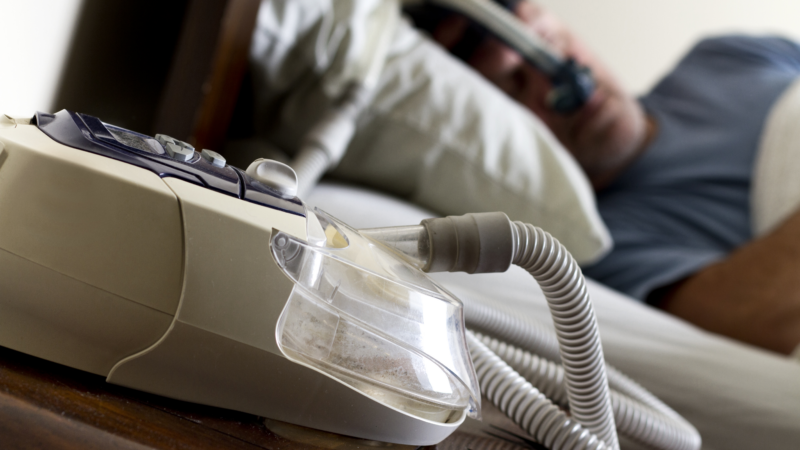FDA approves weight loss drug Zepbound to treat obstructive sleep apnea
The weight loss drug Zepbound has become the first prescription medication approved to treat obstructive sleep apnea.
The Food and Drug Administration on Friday authorized the use of Zepbound, made by Eli Lilly & Co., for adults with obesity and moderate to severe obstructive sleep apnea (OSA), a common condition where a person struggles to breathe properly during sleep. The federal agency advises that the drug is used in combination with a reduced-calorie diet and increased exercise.
Sleep apnea occurs when a person’s upper airway becomes blocked. While it can affect anyone, it is more prevalent among those who are overweight.
The FDA said studies have shown that by aiding weight loss, Zepbound helps reduce sleep apnea symptoms in some patients.
In two studies with adults who had obesity and moderate to severe OSA over a 52-week period, participants who received Zepbound experienced a “statistically significant and clinically meaningful reduction” in episodes of shallow breathing or temporary pauses in breathing while asleep compared to those who received a placebo, the FDA said.
That was true for both participants who used a CPAP machine and those who do not.
“This is a major step forward for patients with obstructive sleep apnea,” said Dr. Sally Seymour, director of the Division of Pulmonology, Allergy, and Critical Care in the FDA’s Center for Drug Evaluation and Research, in a statement.
The federal approval does not come as a complete surprise, as doctors have long recommended that maintaining a healthy weight is crucial for preventing or easing sleep apnea symptoms.
It comes amid growing discussions about the potential uses of weight loss drugs beyond treating obesity and diabetes. In addition to sleep apnea, there has been increasing interest in exploring their potential to treat addiction and certain cancers.
Although this class of drugs, called GLP-1 agonists, was developed two decades ago, research into their potential uses is still in the early stages.
Zepbound, generically known as tirzepatide, was approved by the FDA in November 2023 to treat obesity — becoming a new competitor to Novo Nordisk’s blockbuster Wegovy.
Last March, the FDA approved Wegovy to be used to reduce the risk of strokes, heart attacks, and other cardiovascular problems in patients who are overweight.
Party City files for bankruptcy and plans to shutter nationwide
Party City was once unmatched in its vast selection of affordable celebration goods. But over the years, competition stacked up at Walmart, Target, Spirit Halloween, and especially Amazon.
Sudan’s biggest refugee camp was already struck with famine. Now it’s being shelled
The siege, blamed on the Rapid Support Forces, has sparked a new humanitarian catastrophe and marks an alarming turning point in the Darfur region, already overrun by violence.
Netflix is dreaming of a glitch-free Christmas with 2 major NFL games set
It comes weeks after Netflix's attempt to broadcast live boxing between Jake Paul and Mike Tyson was rife with technical glitches.
Big dreams: He’s the founder of a leading African photobook library
Paul Ninson had an old-school, newfangled dream: a modern library devoted to photobooks showing life on the continent. He maxed out his credit cards, injured his back — and made it happen.
Opinion: The Pope wants priests to lighten up
A reflection on the comedy stylings of Pope Francis, who is telling priests to lighten up and not be so dour.
The FDA restricts a psychoactive mushroom used in some edibles
The Food and Drug Administration has told food manufacturers the psychoactive mushroom Amanita muscaria isn't authorized for food, including edibles, because it doesn't meet safety standards.







